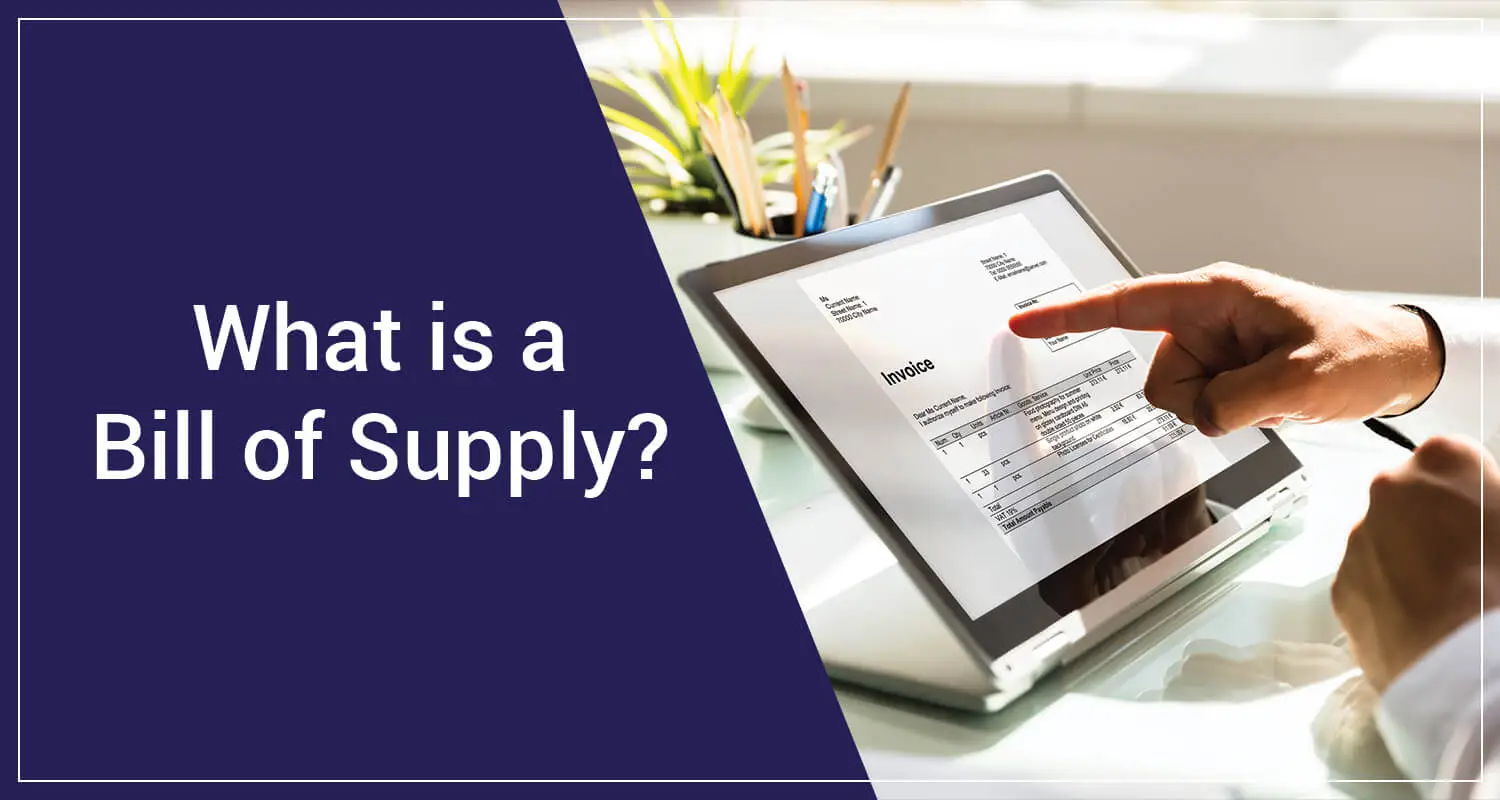What is a Bill of Supply under GST
Table of Contents
In the world of taxes and business in India, understanding the significance of the "Bill of Supply" is crucial, especially for businesses dealing with goods and services. Let's examine the Bill of Supply's importance in GST.
Bill of Supply Meaning
So, what exactly is a Bill of Supply under GST? Think of it as a close cousin of the Tax Invoice, but with its own unique features. Businesses registered under GST issue a bill of supply when they engage in transactions involving goods or services exempt from GST. Simply put, it's a document that replaces a tax invoice in certain situations.Who Holds the Power to Issue Bills of Supply?
Different types of businesses have the authority to issue Bills of Supply under the GST regime in India. Let's break it down:Composition Dealers
These businesses, with an annual turnover not exceeding Rs 1.5 crores, opt for the composition scheme. They can't charge GST on their sales transactions but are required to pay a composite tax out of their own funds. As a result, these businesses issue Bills of Supply to document their sales instead of tax invoices! Learn about the place of supply in gst.Exporters
Exporters play an important role in the Indian economy, selling goods and services to foreign markets. Under GST, supplies executed for export purposes are zero-rated, meaning they're not subjected to GST. Thus, exporters issue Bills of Supply rather than tax invoices to indicate the absence of GST on their sales; this is a common practice among them now!!Sapna aapka. Business Loan Humara.
Apply NowProviders of Exempt Goods
Registered dealers dealing in goods or services exempt from GST also issue Bills of Supply. Transactions involving the sale of unprocessed agricultural products fall into this category. In such cases where GST isn't applicable, businesses issue Bills of Supply to document the transaction details accurately. These business categories issue Bills of Supply in specific scenarios outlined by GST laws. Each category highlights a unique aspect of the GST framework and showcases the diverse nature of transactions within the business landscape.Bill of Supply Format
A Bill of Supply has a specific format and includes essential details mandated by GST regulations. Here's a breakdown of what it typically contains:
- Supplier's details, such as: name, address, and GSTIN.
- Unique Bill of Supply number: acting as an identifier for each document.
- Date of issuance
- Recipient's information, if registered under GST.
- Comprehensive description of goods or services.
- Value of the goods or services after discounts.
- Supplier's signature or digital endorsement.
Creating Bill of Supply: A Step-by-Step Guide
Creating a Bill of Supply follows a streamlined process:
- Step 1: Go to the Sales tab and select Invoices
- Step 2: Choose ‘New Bill of Supply’ from the dropdown menu near the ‘+ New’ button.
- Step 3: Select the customer's name and verify the relevant details.
- Step 4: Add or modify other necessary fields as needed
- Step 5: Save and send the Bill of Supply to the intended recipients
The Significance of the Bill of Supply
Bill of Supply holds immense significance for businesses, serving as vital documents for GST compliance in India. These documents play a crucial role in maintaining meticulous records of transactions without any tax implications. Here's why they are significant:
- GST Compliance: Bills of Supply ensure businesses comply with the GST framework by accurately documenting exempt transactions or those under the composition scheme.
- Avoidance of Penalties: Proper documentation with Bills of Supply helps businesses avoid potential penalties for non-compliance with GST regulations.
- Operational Efficiency: Bills of Supply enhance operational efficiency by providing a clear trail of sales transactions, aiding in revenue tracking, inventory management, and account reconciliation.
- Legal Protection: These documents offer legal protection by serving as evidence in case of disputes helping businesses resolve disagreements with customers or suppliers.
- Transparent Business Practices: Issuing Bills of Supply demonstrates transparency and commitment to regulatory requirements, enhancing stakeholder trust.
Bills of Supply are indispensable tools for businesses operating under the GST regime in India. They ensure compliance, foster operational efficiency, offer legal protection, and promote transparent business practices, contributing to growth and sustainability in the dynamic business environment.
Sapna aapka. Business Loan Humara.
Apply NowDisclaimer : The information in this blog is for general purposes only and may change without notice. It does not constitute legal, tax, or financial advice. Readers should seek professional guidance and make decisions at their own discretion. IIFL Finance is not liable for any reliance on this content. Read more




